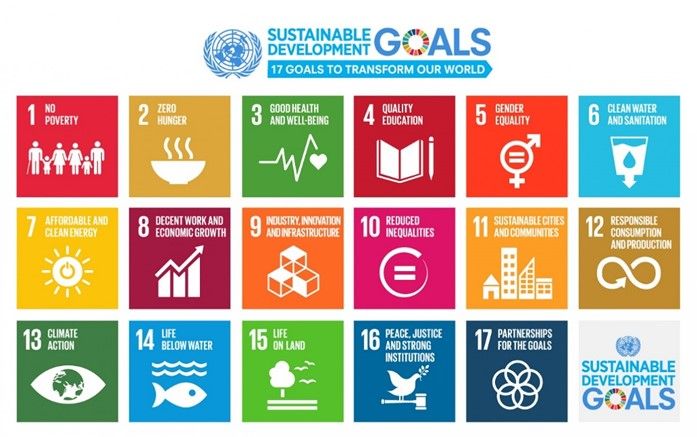Dynamics of Law Enforcement and Justice in the Era of Sustainable Development Goals (SDGs) 5.0 Dinamika Penegakan Hukum dan Keadilan di Era Sustainable Development Goals (SDGs) 5.0
Main Article Content
Abstract
The dynamics of law enforcement and justice in the context of Sustainable Development Goals (SDGs) 5.0 represent an evolving framework that emphasizes the integration of legal systems with global sustainability objectives. SDG 5, which focuses on achieving gender equality and empowering all women and girls, plays a central role in reshaping legal landscapes worldwide. As countries strive to align their legal practices with the SDGs, law enforcement agencies face new challenges and opportunities in addressing issues of gender-based violence, discrimination, and inequality. The era of SDGs 5.0 signifies a more comprehensive approach to justice, recognizing the intersectionality of legal rights, social justice, and environmental sustainability. The role of law enforcement agencies has expanded to encompass not only traditional criminal justice functions but also proactive engagement in social change. They are expected to enforce laws that promote gender equality, protect marginalized communities, and address emerging global issues such as climate justice and human rights. Furthermore, the evolving digital landscape and the increasing use of technology present both a challenge and an opportunity for law enforcement in ensuring justice and equity in a rapidly changing world. This paper examines the changing dynamics of law enforcement and justice in the era of SDGs 5.0, exploring how legal frameworks are adapting to meet the demands of sustainability, gender equality, and social justice. It highlights the need for an integrated approach that combines legal reform, capacity building, and community engagement to achieve the SDGs while ensuring justice for all.
Article Details

This work is licensed under a Creative Commons Attribution-NonCommercial-ShareAlike 4.0 International License.
The Authors(s) retain copyrights of the Article published on Semarang State University Undergraduate Law and Society Review. However, before publishing, it is required to obtain written confirmation from Author(s) in order to ensure the originality (Author Statement of Originality). The statement is to be signed by at least one of the authors who have obtained the assent of the co-author(s) where applicable. This work licensed under a Creative Commons Attribution-NonCommercial-ShareAlike 4.0 International (CC BY-NC-SA 4.0).
References
Ginsberg, Morris, 2013, Keadilan dalam Masyarakat, terjemahan dari “On Justice in Society”, Yogyakarta: Pondok Edukasi.
Hamzah, Andi. 2010. Pengantar Hukum Acara Pidana Indonesia, Jakarta: Ghalia Indonesia, Cet. 4.
Hermann, M., Pentek, T. and Otto, B. 2016. Design Principles for Industrie 4.0 Scenarios. Proceedings of 49th Hawaii International Conference on System Sciences HICSS, Koloa, 5-8 January 2016, 3928-3937.
Huijbers, Theo, 2015, Filsafat Hukum, Yogyakarta: Kanisius.
Hutagalung, Thoga H., 2013, Beberapa Pemikiran tentang Hukum yang Dikemukakan oleh Beberapa Aliran, Bandung: CV. Armico.
Nurrachman, Nani, 2004, Keadilan dalam Perspektif Psiko-Sosial dalam buku Keadilan Sosial: Upaya Mencari Makna Kesejahteraan Bersama di Indonesia, Jakarta: Kompas.
Sugiharto, Bambang I., 2016, Postmodernisme: Tantangan bagi Filsafat, Yogyakarta: Kanisius.
Supriyanto, Bambang Heri. 2014. Penegakan Hukum Mengenai Hak Asasi Manusia (HAM) Menurut Hukum Positif di Indonesia. Jurnal Al-Azhar Indonesia Seri Pranata Sosial, Vol . 2, No. 3, Maret 2014.
Susilo, Agus Budi. 2011. Penegakan Hukum yang Berkeadilan Dalam Perspektif Filsafat Hermeneutika Hukum: Suatu Alternatif Solusi Terhadap Problematika Penegakan Hukum di Indonesia. Perspektif Volume XVI No. 4 Tahun 2011 Edisi September.
Widyadharma, Ign. Ridwan, 2019, Menata Peradilan Indonesia, Semarang: Badan Penerbit Universitas Diponegoro.
Zakiah, Wasingatu, dkk, 2014, Panduan Eksaminasi Publik dan Hasil Eksaminasi Publik Perkara Akbar Tanjung, Jakarta: Indonesian Corruption Watch.
Media Online:
https://jimly.com/makalah/namafile/56/Penegakan_Hukum.pdf
https://www.sdg2030indonesia.org/page/8-apa-itu
